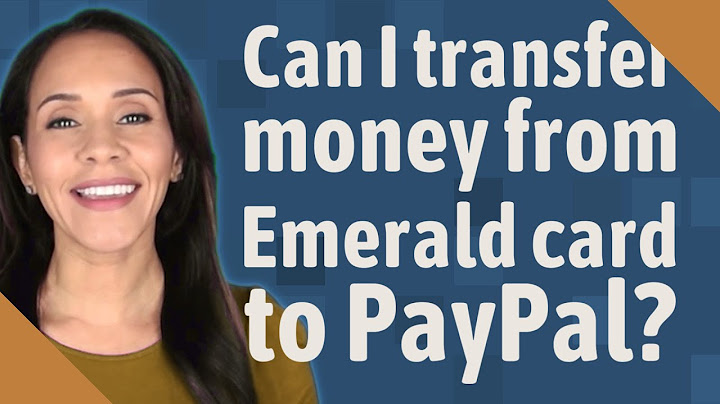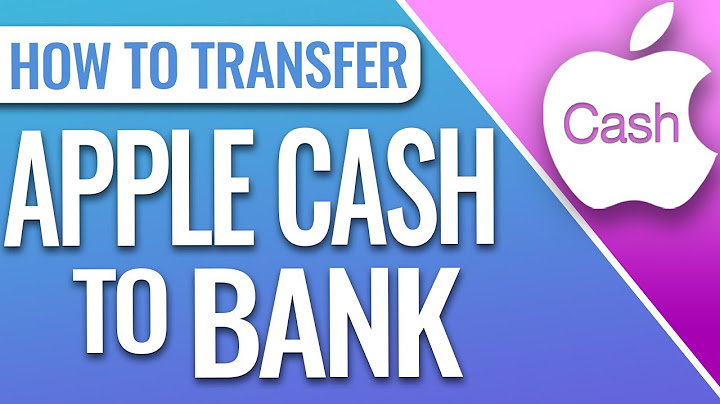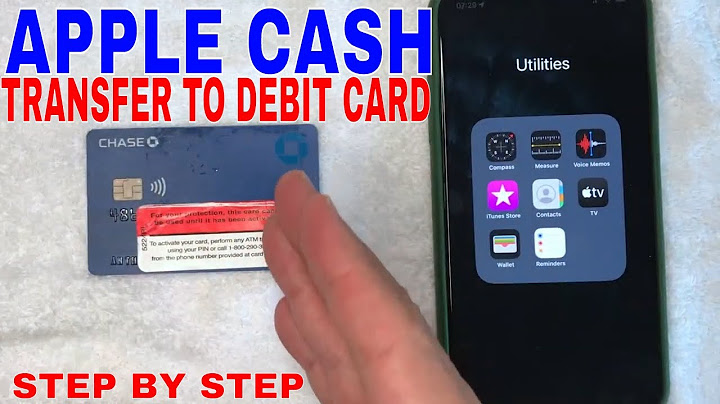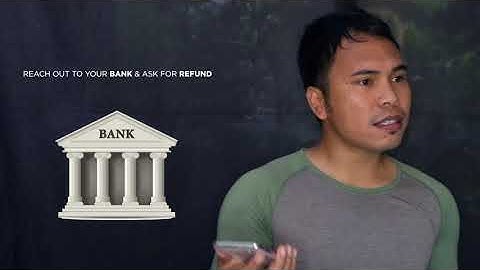Insider's experts choose the best products and services to help make smart decisions with your money (here’s how). In some cases, we receive a commission from our our partners, however, our opinions are our own. Terms apply to offers listed on this page. Show
LoadingSomething is loading. Thanks for signing up! Access your favorite topics in a personalized feed while you're on the go. If you need to send money to someone without a bank account, there are easy transaction tools and resources available regardless of a person's banking situation. Here are five easy tools you can use for sending money. We also included additional resources for unbanked individuals you can share. 1. Prepaid debit cardsAccording to a 2019 FDIC study, 27.7% of unbanked households commonly use prepaid debit cards. Prepaid debit cards serve as common tool for sending money since they are easily activated and work similarly to regular debit cards. You can find prepaid debit cards at financial institutions or grocery stores. Be mindful of sign-up fees, monthly fees, and reload fees. 2. Money ordersMarguerita Cheng, CFP® professional, RICP, and chief executive officer at Blue Ocean Global Wealth, says you should not send cash through the mail ever. If you are looking for a more traditional way of sending money, Cheng notes you can get a money order instead. Money orders can be purchased from a financial institution or store. There's usually a purchase limit of $1,000 and a small fee under $5. 3. Gift cardsStores and some financial institutions have gift cards available. You can send money to an unbanked individual in the form of a gift card, but keep in mind that its usage is restricted to a specific purpose. 4. Online payment servicesOnline payment services offer an easy way to send through your smartphone or computer. PayPal, Venmo, Western Union, and Cash App are some of the most popular payment services that do not require you to own a bank account to receive money. If you use a payment app like PayPal, Venmo, or Cash App, your recipient may sign up for the app and link a prepaid debit card. Meanwhile, Western Union is a money transfer service with more than 42,000 centers across the US and 500,000 locations worldwide. You may send a payment online or through the service app, and your recipient can pick up the money at a location. Transaction limits for online payment servicesYou may use this chart to help you if you want to send money through an online payment service: *Western Union fees depend on your payment method (bank account, a western union location, or credit card) and the recipient's location. Payment apps usually allow higher single transaction limits if you verify your account. For example, Venmo has a $299.99 single transaction limit for people when they first sign up for their accounts. Once the person verifies their account, the transaction limit increases to $4,999.99. 5. Digital walletsDigital wallets serve as another online payment tool you can use. Digital wallets are similar to payment apps. You may add payment information to your smartphone or smartwatch through an app. However, digital wallets store methods of payments through a unique process called tokenization, which essentially makes your information more secure. Some digital wallets are only compatible with specific smartphones. For instance, you'll need to have an Apple device to use Apple Pay. Transaction limits for digital walletsDigital wallets have a weekly rolling limit. For instance, if you use transfer $1,000 a Monday on Apple Pay, your limit will decrease to $9,000. The transaction will also count toward your limit until the following Monday. Tips for sending money without a bank accountWhen sending money to someone without a bank account, Cheng suggests comparing different options to find the best for your situation. "You have to think about, do you want the fastest, do you want the cheapest, or do you want the safest?" explains Cheng. "Sometimes, if it's speedy, it's gonna cost more. But you also don't want to compromise on security." If you are sending money abroad, Cheng says you'll want to make sure that you protect yourself and treat security as a top priority. "The first thing that I did is I made sure that there was security, meaning that if, for whatever reason, this person can't get their money, that the money could be returned to me," adds Cheng. You'll also want to confirm that your recipient will be the person picking up and cashing in the payment. They may not be able to receive the payment if another person's name is on it or a nickname is used. Additional resources for unbanked populationsThe 2019 FDIC study cited earlier found that some of the most cited reasons for not owning a bank account are because unbanked households do not trust banks or don't believe they can meet the minimum balance requirements to own a bank account. If you'd also like to help an unbanked person find a bank account, here are a few resources you may share:
Sophia Acevedo, CEPF Junior Banking Reporter Sophia Acevedo is a junior banking reporter at Insider who covers banking and savings for Personal Finance Insider. She is also a Certified Educator in Personal Finance (CEPF). She joined Insider in July 2021 as a fellow for the Personal Finance Insider Reviews team. Before joining the Insider team, she was a freelancer based in Los Angeles and worked briefly in publishing. She also graduated from California State University Fullerton in 2020. You can reach out to her on Twitter at @sophieacvdo or send a quick email at . Read more about how Personal Finance Insider chooses, rates, and covers financial products and services >> Read more Read less Can I transfer money from my account without ATM card?What is the Instant Money Transfer (IMT) ? IMT is a unique product that can be used to send money instantly to any mobile number in India. The receiver can withdraw the money through an ATM without using a card.
What App Can I transfer money without debit card?PayPal, Venmo, Western Union, and Cash App are some of the most popular payment services that do not require you to own a bank account to receive money. If you use a payment app like PayPal, Venmo, or Cash App, your recipient may sign up for the app and link a prepaid debit card.
|

Related Posts
Advertising
LATEST NEWS
Advertising
Populer
Advertising
About

Copyright © 2024 kemunculan Inc.


















